The couple worried about them all night, even going so far as to find a recording of finches and play it near the nest before dark, hoping to attract the mother to her babies. This morning they were cold and listless, so the wife called me in tears and described what they’d done. It should have worked. It’s worked in the past. I told her they’d done exactly what I would’ve recommended but now, since Mama Finch hadn’t returned, those babies needed to be on low heat immediately and then gotten to me ASAP.
Within about 90 minutes I had three warm but lethargic babies. The fourth had died en route. Once they were rehydrated, they perked up and we started small feedings—they’re tiny, so the feedings are small, anyway! They’re gaping for me now, and I think they’ve at least got a fighting chance.
Sadly, the Eastern bluebird eggs are gonna be a bust, it appears. One started pipping yesterday, and I got really excited, thinking that I’d have a hatchling within hours. Bluebird eggs normally take 1-6 hours to hatch. By hour 12, I knew we had a problem. Sadly, the poor baby pipped but never finished absorbing the yolk sac prior to hatching. It basically “died a-bornin’.” Putting it in human terms, it would be like a woman carrying a child to term, healthy right up to birth, and then it being stillborn for no apparent reason.
Whenever LWR gets a call about baby birds in really odd places—boat motors, grilles of seldom-used vehicles, tractor tires, pants pockets (no joke!), inside apparently sealed boxes—I’m 99% sure we’ve got Carolina wrens coming in. Sure enough, last week a recycling business called and said someone had brought in an old air conditioning unit for scrap metal, and the business owner heard a racket inside…yep, five nestling Carolina wrens, eyes just beginning to open!
They weren’t too long without food, so they were in good shape when they came in and remain hungry little rascals. I adore these loud-mouthed, perky little birds with their amazingly long, slender beaks—even as babies, their beaks are so distinctive!
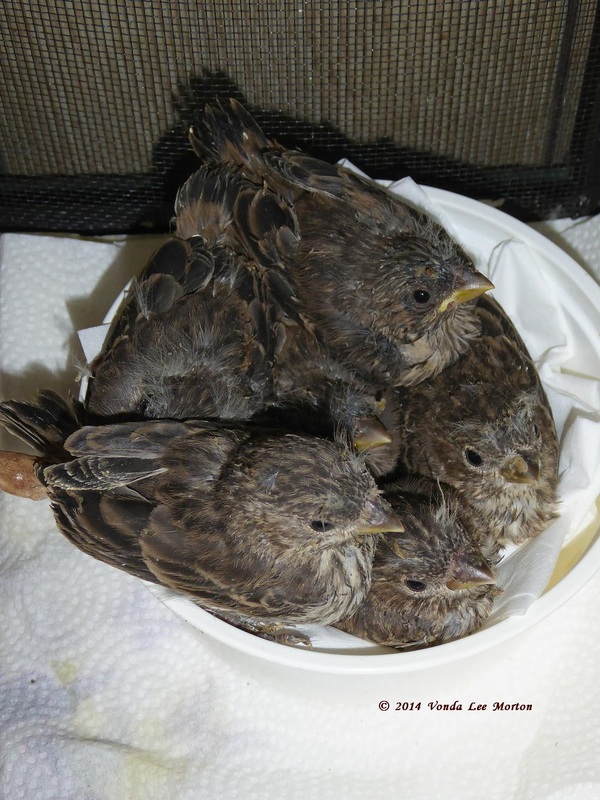
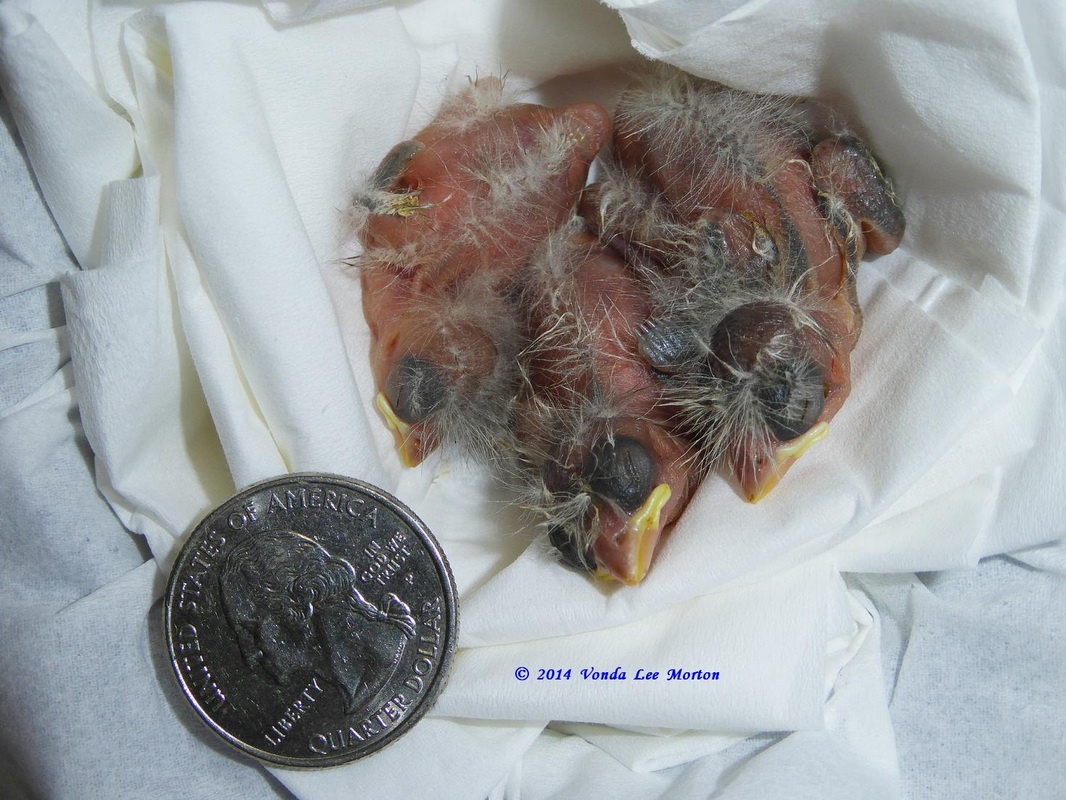
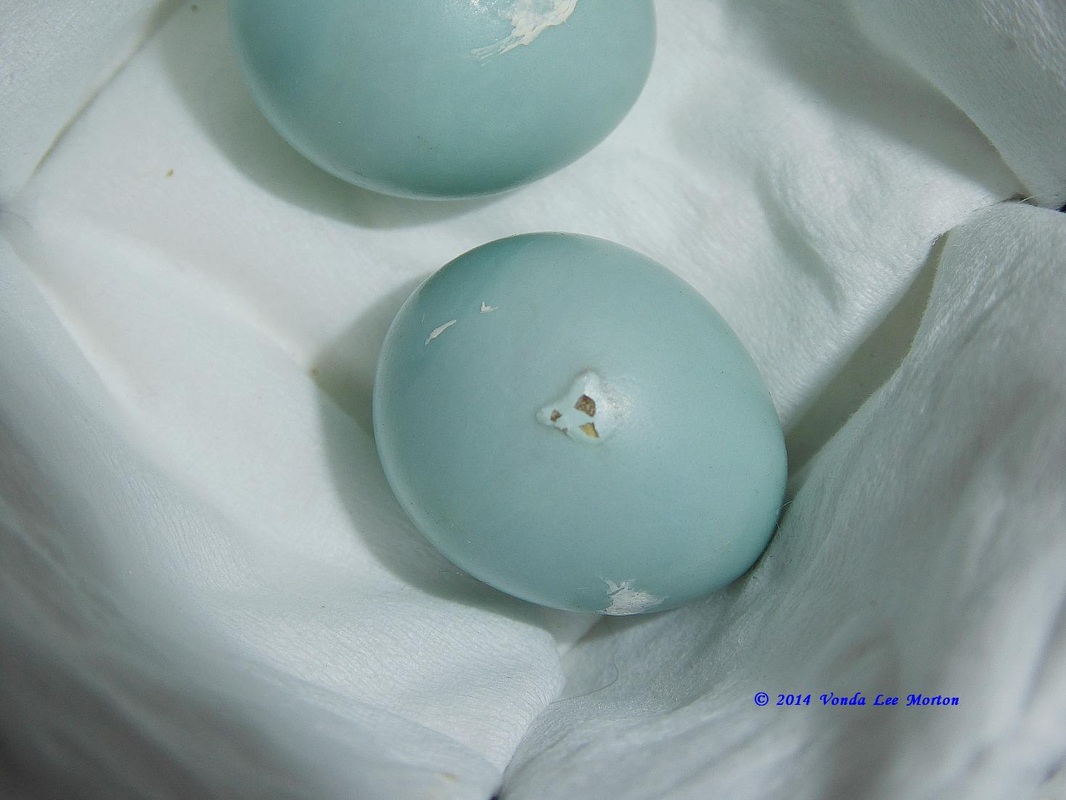
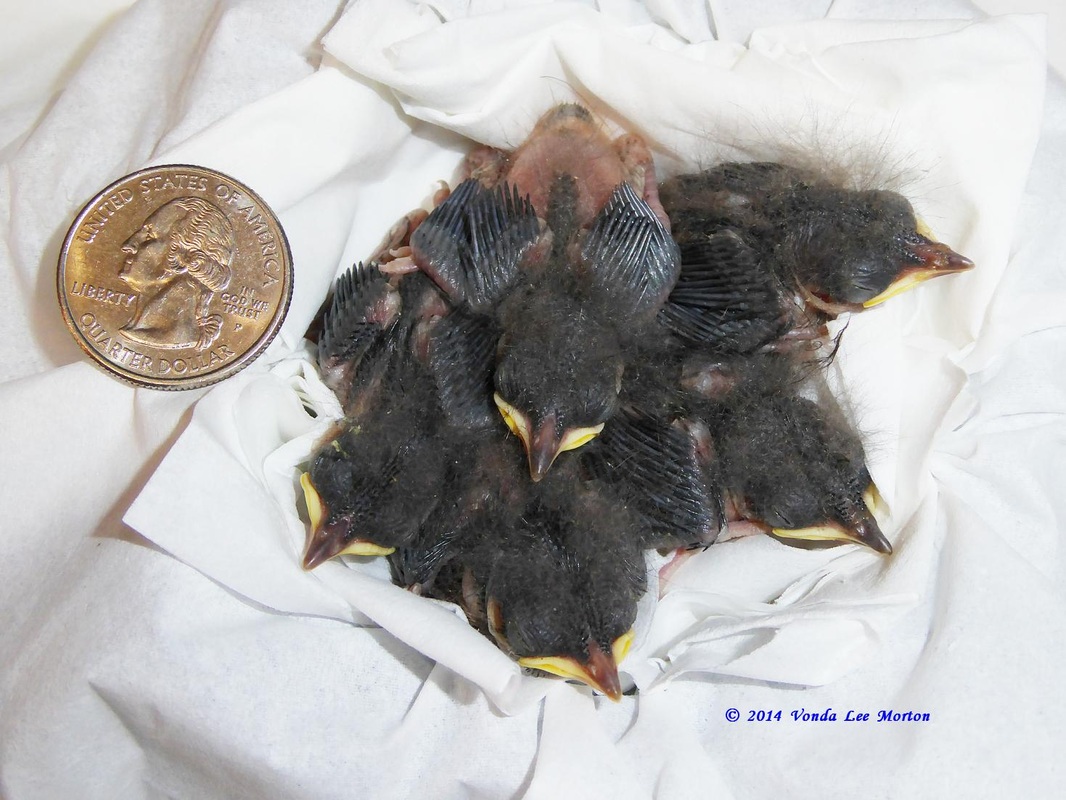
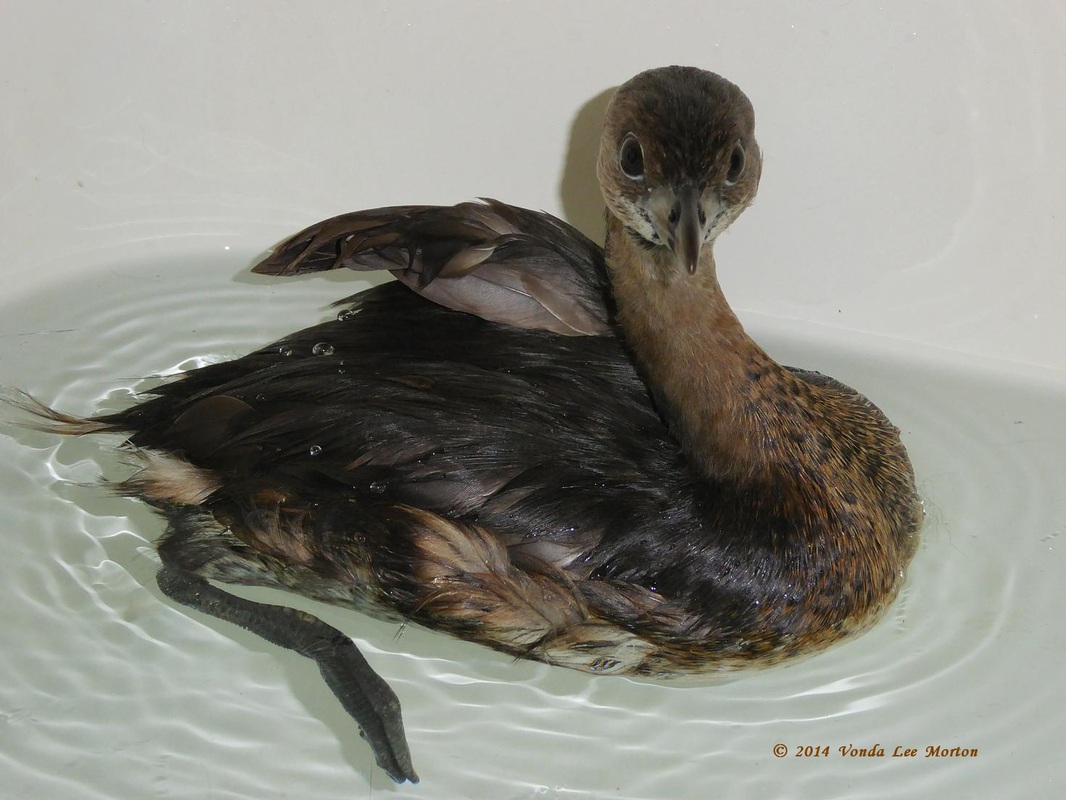

 RSS Feed
RSS Feed
